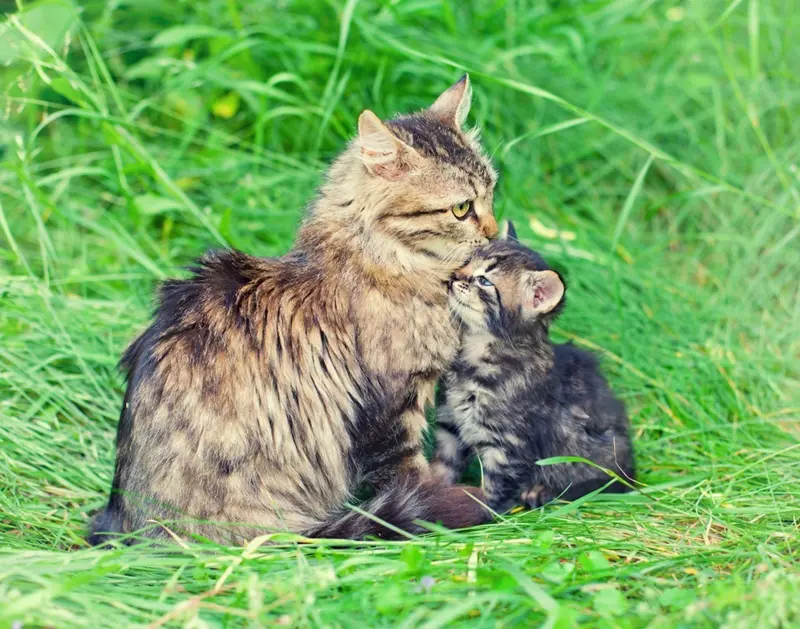Mother cats are known for their nurturing and protective instincts towards their kittens. However, there are rare instances where a mother cat may exhibit a behavior that shocks and distresses pet owners – eating her own offspring. While this act, known as infanticide, may seem horrifying, it is essential to understand that it is a natural behavior observed in various animal species, including cats.
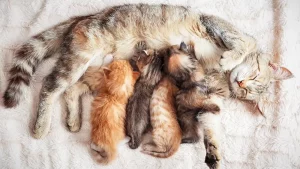
In this comprehensive guide, we will explore the reasons why a mother cat might eat her kittens. We will delve into the instincts and circumstances that can lead to this behavior, as well as provide insights on how to handle such situations. Understanding these factors can help pet owners better care for their feline companions and ensure the well-being of both the mother cat and her litter.
1. Normal Post-Birth Behavior: Chewing the Umbilical Cord and Consuming the Afterbirth
One of the first behaviors a mother cat displays after giving birth is chewing the umbilical cord of each kitten. This act is essential for severing the connection between the kitten and the placenta. Additionally, some mother cats may also consume the afterbirth, which provides vital nutrients to aid in their recovery and milk production. It is crucial to note that these actions are completely normal and do not indicate any intention to harm or eat the kittens.
2. Stillborn Kittens: A Protective Instinct
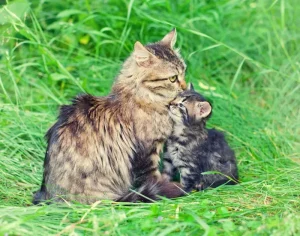
In instances where a kitten is stillborn, a mother cat’s protective instincts may trigger the urge to remove the lifeless body from the litter. This behavior is rooted in the need to eliminate any potential threat to the surviving kittens’ safety. In the wild, the presence of a stillborn kitten can attract predators and pose a hygiene risk. While domesticated cats may not face the same threats, their instincts have not fully adapted to their environment. If a stillborn kitten is present, gently removing it allows the mother cat to focus on caring for the remaining healthy kittens.
3. Birth Defects: Ensuring Survival
Mother cats possess an instinctual ability to detect birth defects in their offspring. If a mother cat senses that a kitten has severe defects or illnesses that make its survival unlikely, she may choose to consume it. This behavior serves as a survival strategy to prevent the dead or sick kitten from attracting predators and to focus her energy on caring for the rest of the litter. While this behavior may appear harsh, it is a natural evolutionary response aimed at ensuring the survival of the strongest offspring.
4. Threats and Stress: A Mother’s Protective Measures
Cats are highly sensitive animals, and their stress levels can escalate during the birthing process. Factors such as loud noises, sudden environmental changes, or excessive human presence can contribute to heightened stress levels in a mother cat. If the perceived threats and stressors persist, the mother cat’s survival instincts may kick in, leading her to view her kittens as potential risks. In extreme cases, she may resort to eating her young to eliminate the perceived threat.
To minimize stress for the mother cat, it is crucial to create a calm and secure environment for her to give birth and care for her kittens. This includes providing a quiet and secluded spot, limiting visitors, and avoiding unnecessary disruptions. Recognizing signs of stress, such as pacing or hissing, and addressing them promptly can help alleviate the mother cat’s anxiety and reduce the likelihood of infanticide.
5. Severe Malnutrition: A Desperate Measure
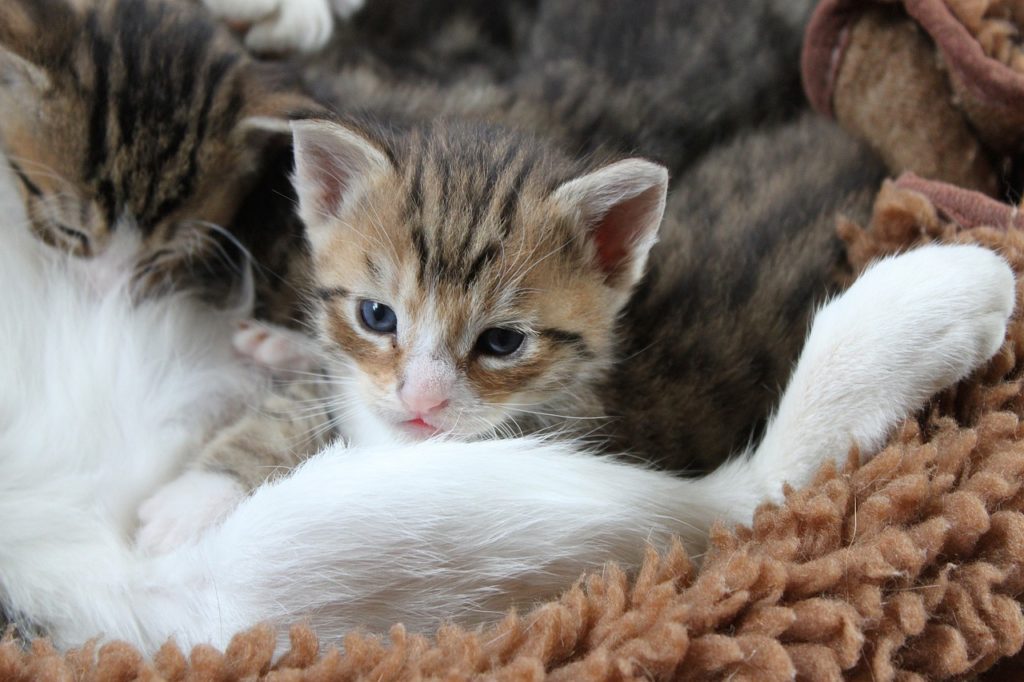
In situations where a mother cat is severely malnourished or unable to provide adequate nourishment for her kittens, she may resort to eating one or more of them as a desperate measure. This behavior arises from the mother cat’s understanding that she cannot support the entire litter or produce sufficient milk to sustain them. By consuming a portion of her offspring, she can acquire vital nutrients for herself, ensuring her own survival and increasing the chances of survival for the remaining kittens.
To prevent this scenario, it is crucial to provide the mother cat with a well-balanced and nutritious diet before and after giving birth. Consult with a veterinarian to determine the best type and quantity of food to support the mother cat’s nutritional needs. If the mother cat becomes excessively thin during nursing, a phone consultation or home visit with the vet can provide guidance on adjusting her diet or supplementing the kittens’ nutrition.
6. Mastitis: A Painful Infection
Mastitis, an infection of the mammary glands, can cause extreme pain for a mother cat while nursing her kittens. This condition not only distresses the mother cat but also puts the kittens at risk of infection through contaminated milk. In some cases, a mother cat may abandon or eat her kittens to alleviate the pain and protect them from potential harm. In the wild, this behavior would naturally lead to the cessation of milk production, effectively resolving the mastitis.
If you suspect that your cat may have mastitis, it is crucial to consult with a veterinarian promptly. Early detection and treatment with antibiotics can help alleviate the infection and prevent further complications. By addressing mastitis, pet owners can support the mother cat in her role as a caregiver and ensure the well-being of the entire litter.
What to Do if Your Female Cat Eats Her Kittens
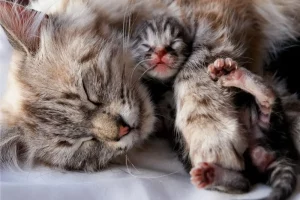
Discovering that a mother cat has eaten one or more of her kittens can be distressing for pet owners. However, it is essential to approach the situation with empathy and understanding. Remember that the mother cat is acting on her natural instincts, and punitive measures will not be effective or justified.
If you suspect that a mother cat has consumed one of her kittens, it is crucial to seek immediate veterinary assistance. A veterinarian can provide insights into the potential reasons behind this behavior and guide you on how to protect the remaining kittens. It is important to ensure that the mother cat has a supportive and secure environment, as well as access to proper nutrition, to enhance the chances of successful kitten rearing.
In conclusion, while the act of a mother cat eating her kittens may shock and disturb pet owners, it is essential to recognize that it is a rare occurrence rooted in natural instincts. Understanding the reasons behind this behavior can help pet owners provide appropriate care and support for their cats, ensuring the well-being of both the mother and her litter. By creating a nurturing environment, addressing stressors, and providing proper nutrition, pet owners can increase the likelihood of a successful and healthy litter of kittens.
